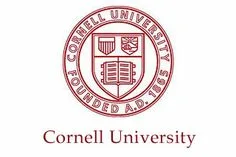Unraveling the Requirements for a Cornell University Chemistry PhD
Understanding the prerequisites and qualifications necessary for pursuing a Chemistry Ph.D. at Cornell University.
What is Cornell University?
An overview of Cornell University and its esteemed academic programs.
Exploring the Chemistry Department
Insight into Cornell’s Chemistry Department and its reputation in academia.
The Journey to a PhD in Chemistry
A breakdown of the academic journey towards earning a Chemistry Ph.D. from Cornell.
Undergraduate Preparation
The importance of a strong undergraduate foundation in chemistry and related fields.
Graduate Admissions Process
Insights into the application procedure and requirements for admission to Cornell’s Chemistry Ph.D. program.
Academic Criteria
GPA, standardized test scores, and prerequisites for prospective applicants.
Letters of Recommendation
The significance of recommendation letters and how they impact the admission decision.
Statement of Purpose
Crafting a compelling statement of purpose that reflects one’s academic and research interests.
Research Experience
The role of research experience in strengthening an application for a Chemistry Ph.D. program.
Interview Process
An overview of the interview process and its significance in the admissions decision.
Coursework and Research
Navigating through coursework and research requirements during the Ph.D. program.
Core Curriculum
Overview of essential courses and their significance in building a strong foundation in chemistry.
Specialization Tracks
Exploring various specialization tracks and research areas offered within Cornell’s Chemistry Department.
Thesis Research
The process of conducting original research and writing a doctoral thesis.
Resources and Support
The resources available to Chemistry Ph.D. students at Cornell University.
Faculty Mentorship
The importance of faculty mentorship and collaboration in academic and research pursuits.
Funding Opportunities
Exploring avenues for funding support during the Ph.D. program.
Academic Support Services
Overview of academic support services available to students to ensure their success.
Embarking on the journey towards a Ph.D. in Chemistry at Cornell University requires a meticulous understanding of the prerequisites and qualifications demanded by the prestigious institution. As one of the leading Ivy League universities, Cornell holds its Chemistry Ph.D. program to rigorous standards, ensuring that only the most dedicated and qualified individuals are admitted.
Undergraduate Preparation
Prospective applicants are advised to lay a solid foundation during their undergraduate studies. This includes excelling in core chemistry courses, mathematics, and physics. Maintaining a competitive GPA is essential, often with a focus on science and mathematics-related subjects.
Graduate Admissions Process
Cornell’s Chemistry Ph.D. program attracts a vast pool of talented individuals from around the globe. The admissions process is highly selective, with stringent criteria to assess applicants’ academic potential and research capabilities.
Academic Criteria
Applicants are typically expected to have an exceptional academic record, including a high undergraduate GPA and impressive scores on standardized tests such as the GRE (Graduate Record Examination). While there’s no strict cutoff, competitive applicants often have scores in the top percentiles.
Letters of Recommendation
Letters of recommendation play a crucial role in evaluating an applicant’s potential for success in graduate studies. Strong endorsements from professors or mentors who can attest to the applicant’s academic abilities, research potential, and personal qualities are highly valued.
Statement of Purpose
The statement of purpose provides applicants with an opportunity to articulate their academic and research interests, career goals, and reasons for pursuing a Ph.D. in Chemistry at Cornell University. A well-crafted statement that aligns with the research interests of faculty members can significantly enhance an applicant’s chances of acceptance.
Research Experience
While not always mandatory, prior research experience can greatly strengthen an applicant’s profile. Whether through internships, laboratory work, or independent research projects, demonstrating a genuine passion for scientific inquiry and a capacity for innovative research is highly advantageous.
Interview Process
Shortlisted candidates are often invited for interviews as part of the admissions process. These interviews serve as an opportunity for faculty members to assess the applicant’s fit for the program, discuss research interests, and gauge their potential contributions to the academic community.
Once admitted, students embark on a challenging yet rewarding journey characterized by rigorous coursework, groundbreaking research, and intellectual growth. Cornell’s Chemistry Ph.D. program offers a wealth of resources and support to help students navigate their academic and professional endeavors successfully.
Coursework and Research
The coursework component of Cornell’s Chemistry Ph.D. program is designed to provide students with a comprehensive understanding of the fundamental principles of chemistry while also allowing for specialization in their areas of interest.
Core Curriculum
Students are required to complete a series of core courses covering key areas of chemistry, including organic, inorganic, physical, and analytical chemistry. These courses lay the groundwork for advanced study and research in specialized fields.
Specialization Tracks
Cornell offers a diverse range of specialization tracks within the Chemistry Department, allowing students to tailor their academic and research pursuits to their interests and career goals. These tracks may include areas such as chemical biology, materials chemistry, environmental chemistry, and theoretical chemistry, among others.
Thesis Research
Central to the Ph.D. program is the completion of original research culminating in a doctoral thesis. Under the guidance of a faculty advisor, students conduct independent research aimed at addressing significant scientific questions and advancing knowledge in their chosen field. The thesis serves as a demonstration of the student’s ability to conceive, execute, and communicate original research findings.
Resources and Support
Cornell University is committed to providing its Chemistry Ph.D. students with the resources and support necessary for academic and professional success.
Faculty Mentorship
Students benefit from close mentorship and guidance from world-renowned faculty members who are leaders in their respective fields. Faculty advisors provide support and mentorship throughout the student’s academic journey, offering insights, advice, and opportunities for collaboration.
Funding Opportunities
Cornell offers various funding opportunities to support graduate students in their academic and research pursuits. These may include fellowships, scholarships, teaching assistantships, research assistantships, and grants. Financial support is available to help students cover tuition, fees, and living expenses while pursuing their Ph.D.
Academic Support Services
The university provides a range of academic support services to assist students in achieving their academic and professional goals. These services may include academic advising, tutoring, writing support, career counseling, and workshops on academic and professional development.
In conclusion, pursuing a Ph.D. in Chemistry at Cornell University is a challenging yet rewarding endeavor that offers students the opportunity to engage in cutting-edge research, receive mentorship from world-class faculty, and become leaders in their field. With its rigorous academic curriculum, supportive environment, and ample resources, Cornell provides an ideal setting for aspiring chemists to pursue their academic and professional aspirations.
Conclusion
Summarizing the key requirements and aspects of pursuing a Chemistry Ph.D. at Cornell University.

